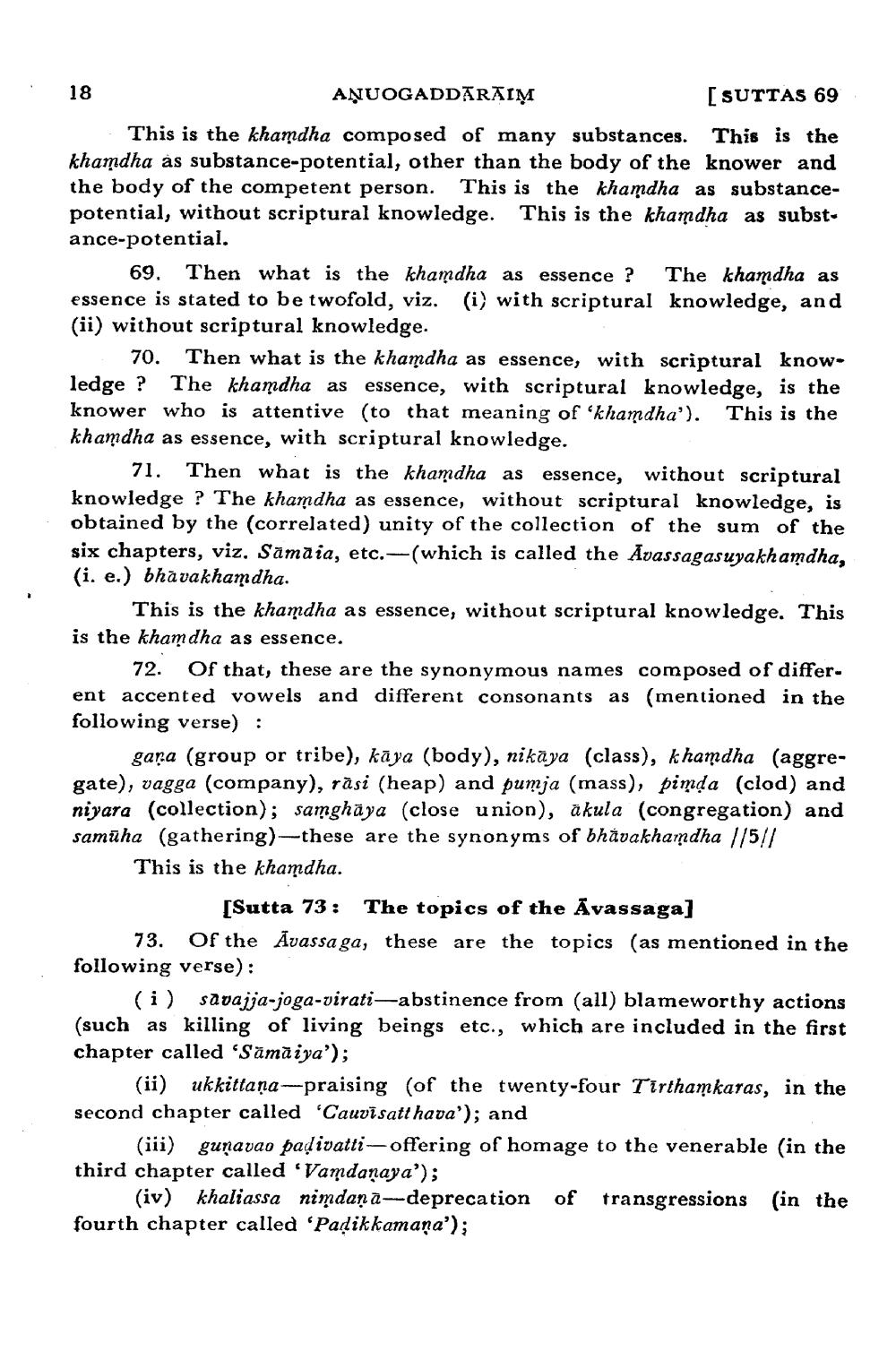________________
18
AŅUOGADDĀRAIM
[SUTTAS 69
This is the khamdha composed of many substances. This is the khamdha às substance-potential, other than the body of the knower and the body of the competent person. This is the khamdha as substancepotential, without scriptural knowledge. This is the khamdha as subst. ance-potential.
69. Then what is the khamdha as essence ? The khamdha as essence is stated to be twofold, viz. (i) with scriptural knowledge, and (ii) without scriptural knowledge.
70. Then what is the khamdha as essence, with scriptural knowledge ? The khamdha as essence, with scriptural knowledge, is the knower who is attentive (to that meaning of 'khamdha'). This is the khamdha as essence, with scriptural knowledge.
71. Then what is the khamdha as essence, without scriptural knowledge ? The khamdha as essence, without scriptural knowledge, is obtained by the (correlated) unity of the collection of the sum of the six chapters, viz. Sämaia, etc.-(which is called the Avassagasuyakhamdha, (i. e.) bhāvakhamdha.
This is the khamdha as essence, without scriptural knowledge. This is the khamdha as essence.
72. Of that, these are the synonymous names composed of different accented vowels and different consonants as (mentioned in the following verse):
gaña (group or tribe), kāya (body), nikäya (class), khamdha (aggregate), vagga (company), rasi (heap) and pumja (mass), pimda (clod) and niyara (collection); samghāya (close union), akula (congregation) and samüha (gathering)--these are the synonyms of bhåvakhamdha 1/5/1 This is the khamdha.
[Sutta 73: The topics of the Āvassaga] 73. Of the Avassa ga, these are the topics (as mentioned in the following verse):
(i) sävajja-joga-virati-abstinence from (all) blameworthy actions (such as killing of living beings etc., which are included in the first chapter called 'Sāmā iya');
(ii) ukkittaņa-praising (of the twenty-four Tirthamkaras, in the second chapter called 'Cauvisatt hava'); and
(iii) gunavao padivatti-offering of homage to the venerable (in the third chapter called 'Vamdanaya');
(iv) khaliassa nimdaņā-deprecation of transgressions in the fourth chapter called 'Padikkamana');




